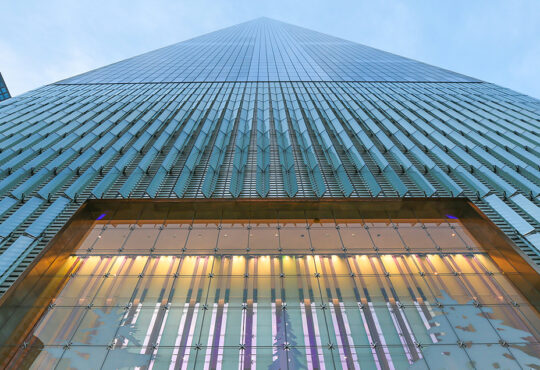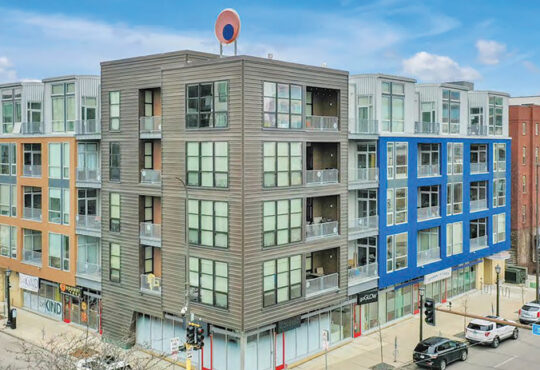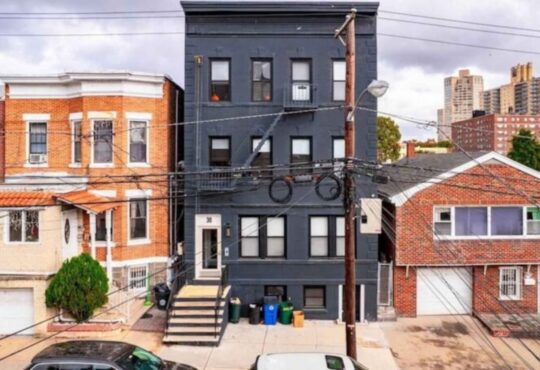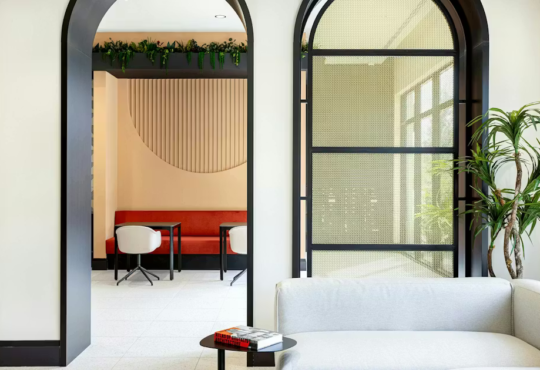
Dozens of citizens packed the Town Meeting Hall this week to voice their opinions about a proposed overhaul to the Lebanon Zoning Code.
The Council took up first reading of an ordinance to approve a comprehensive update to Title 14, the City of Lebanon Zoning Code, and corresponding changes to the Official Zoning Atlas. The Planning Commission recommended approval 8-0 during an August meeting.
The update to the zoning code dates back to 2016 when then Mayor Philip Craighead formed a Visioning Committee to work on future planning for the City of Lebanon. In 2017, that committee came up with a vision statement including a future land use plan. That same year, Mayor Bernie Ash formed a Comprehensive Plan Committee, but progress stalled until Bell took it up again in 2020 for his first term.
As with all zoning updates, a public hearing was held before the start of Tuesday’s meeting. During the public comment period, 12 people approached the podium to voice concerns over one of the changes — the light industrial zoning, which includes warehouses. Out of 787 pages, it’s 21 pages which sparked public debate.
Lebanon Mayor Rick Bell, over the course of his time as mayor, said multiple times he doesn’t want Lebanon to be known as the “distribution center capital of Tennessee,” and recent county-level public hearings on proposed industrial parks would seem to show residents feel the same way. There are currently 29 speculative warehouses covering approximately 1,075 acres in Lebanon.
However, those speaking at the City Council meeting seemed to lean in favor of warehouses.
The update would require developers to declare the intended use of industrial buildings and seek approval from the City, limiting the number of “speculative warehouses” (warehouses which have no specific defined use) being built within the city.
The update would retroactively impact current properties. Property owners said they would lose investments made in the city and some said had they known the zoning would change, they would have looked elsewhere to build.
“Our interests are local and our commitment is long term,” Richard Mascadelli, owner of industrial property at 1442 Toshiba Dr., said. “We respectfully urge the council to grandfather all existing industrial properties, whether developed or undeveloped, under their current zoning classifications. New standards should apply prospectively to new annexations or rezonings, not retroactively to properties that have operated in compliance for decades.”
“I’ll take a warehouse any day over an apartment complex or a bunch of crazy neighbors that’s moved in here,” Anna Fay Leeman said, speaking on the industrial development which popped up in the Interstate 840 corridor, specifically saying it was made for distribution.
The attendees applauded her statement.
“When you’ve killed [distribution], you’ve killed America. You’ve killed Lebanon. You’ve killed this county,” she added. “And I don’t know what’s going on that Lebanon is thinking they’re too good to have warehouses, because they’re not. It brings in tax dollars to this city and this county, and when you kill the tax base, you’ve killed us.”
Attorneys Alex Dickerson, speaking on behalf of clients on Eastgate Boulevard; and Kevin Scott, speaking on behalf of CRG, likewise asked the council to grandfather in existing industrial warehouses.
“The reason my client purchased the property was to turn the warehouse building into a warehouse,” Dickerson said. “If the zoning code is passed as-is today, they won’t have the ability to do that. They will lose their legitimate industry-backed expectations when they purchased the property. It’s created a lot of uncertainty.”
“It tells investors that the rules can change,” Scott said.
Other speakers mentioned Lebanon’s history in manufacturing and other industrial properties which include warehouses.
“This town was built on [manufacturing]. My family’s part of that,” Bell said, suggesting an amendment to the proposed zoning code regarding warehouses which would grandfather existing properties including ones currently in development.
“I want Lebanon to be the best we can be,” he continued. “What I hope happens tonight is the council keeps the industrial properties where they are now”
Opinions among the councilors were split.
“I have heard your concerns, and discussions about industrial properties are not just about land or zoning. They impact families,” Ward 3 Councilor Camille Burdine said. “I understand the ordinance before us tonight will directly affect your families and others in our community.”
Ward 4 Councilor Chris Crowell said there are pros and cons to the industrial development in his ward, particularly on the State Route 109 and I-840 corridors.
“It’s been great for the people who’ve gotten jobs, but there’s also a lot of truck traffic,” Crowell said, noting the impact of increased traffic near neighborhoods because of industrial zones.
He also agreed with many of the public comments for grandfathering existing properties, but said that the new code gives flexibility and control to the council for determining future warehouse development.
A vote to approve the first reading with an amendment to grandfather in current properties failed. Burdine abstained from the vote, along with Ward 1 Councilor Joey Carmack and Ward 2 Councilor Geri Ashley, resulting in a 3-0 vote — no majority and no tie for Bell to break. Immediately following this, Carmack made a motion for a different amendment — keep the current industrial zoning code, but pass the rest of the updates. That vote passed 4-0 with Crowell and Ward 6 Councilor Phil Morehead abstaining. Ward 5 Councilor Tick Bryan joined Carmack, Ashley and Burdine in their vote.
“The future of Lebanon should not be determined by state government, lobbyists, attorneys, or developers backed by hedge funds,” Mayor Bell stated in a press release following the meeting. “I am disappointed by the city council’s vote to remove industrial restrictions and allowing unlimited building of speculative warehouses throughout the entire city. We should plan for our future with a zoning code written for the future.”
“I am proud of Lebanon’s manufacturing legacy, which has provided employment for thousands of residents over generations,” Bell continued. “My family contributed significantly to that history. In recent years, we have worked diligently to elevate our city’s standards, and I stand by those efforts.”
On Wednesday, during the Coleman & Company morning show on WANT 98.9, Bell spoke with Coleman about the previous night’s meeting.
“Frankly Coleman, Joey, who made the motion, and [the councilors who voted for it] didn’t give a reason why,” Bell said. “I thought I made a pretty good argument for changes going forward. I thought Phil and Chris did, too.”
“The result is [Carmack, Ashley, Burdine and Bryan put] developers and special interests above the positive growth future for Lebanon when it comes to industrial areas,” he added. “I mean, there’s no other way to cut it.”
On Thursday, Carmack released a statement.
“I am committed to preserving the rights of landowners who have invested in their property. The zoning remains unchanged, and I see no reason to infringe upon anyone’s rights,” Carmack’s statement read. “While the Mayor has suggested that warehouses can be built anywhere, in my opinion, this is inaccurate. Any proposed warehouse development would still require a rezoning request and [council] approval.”






